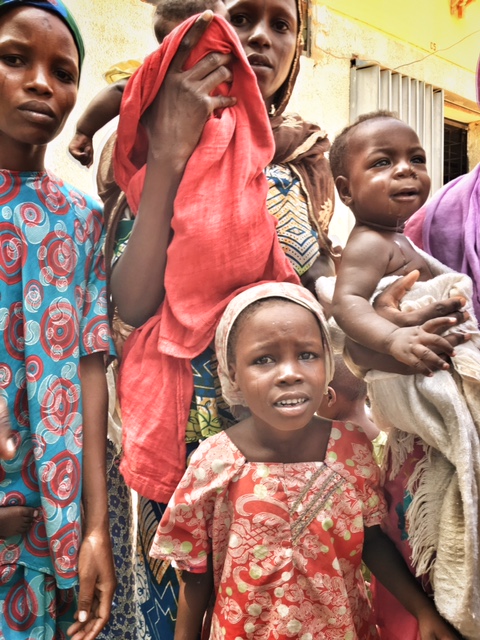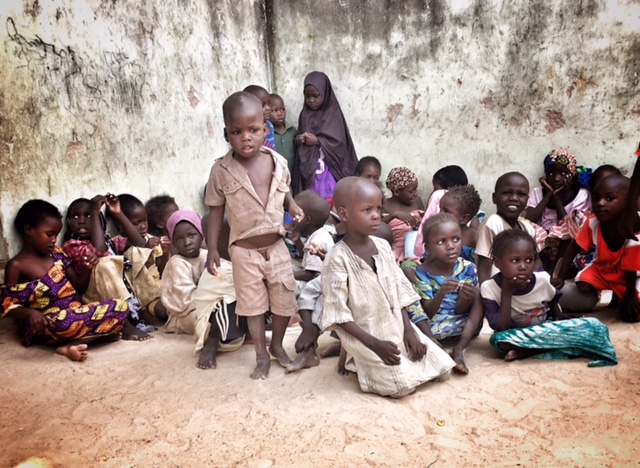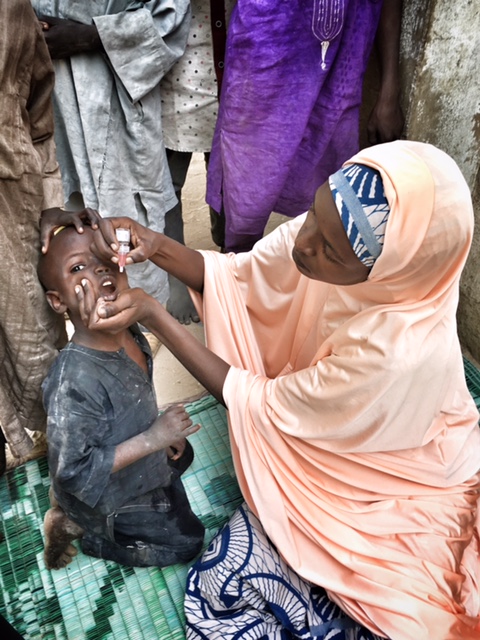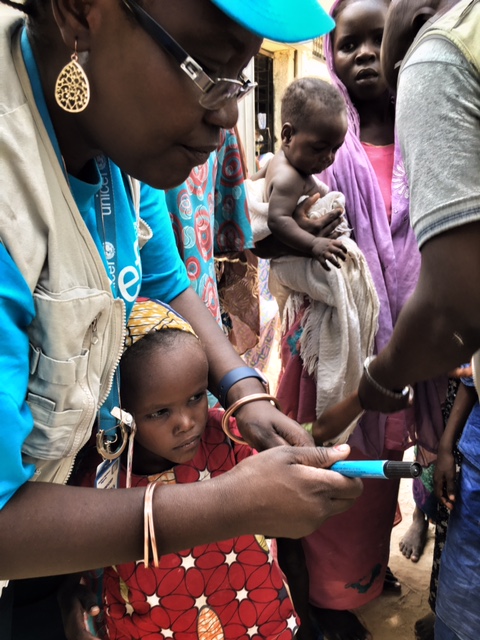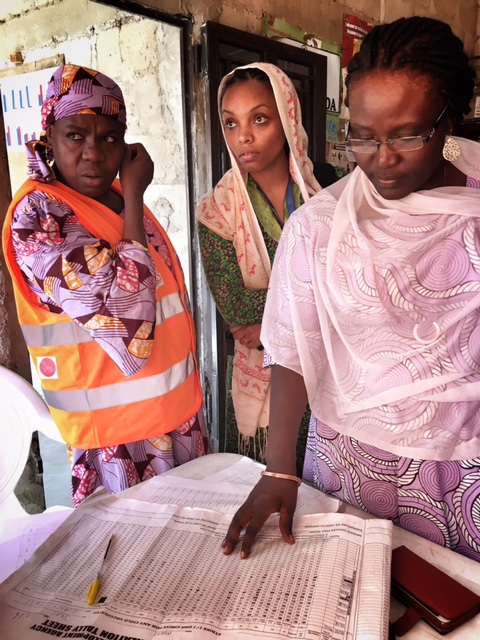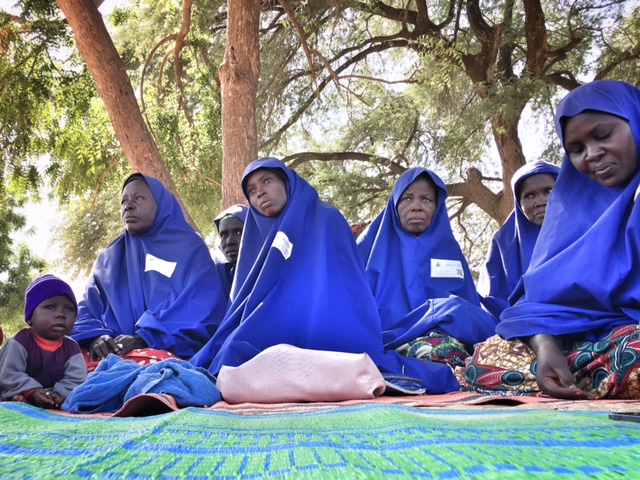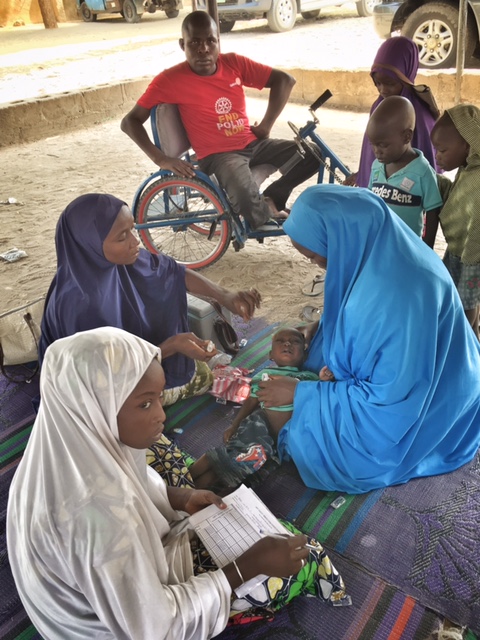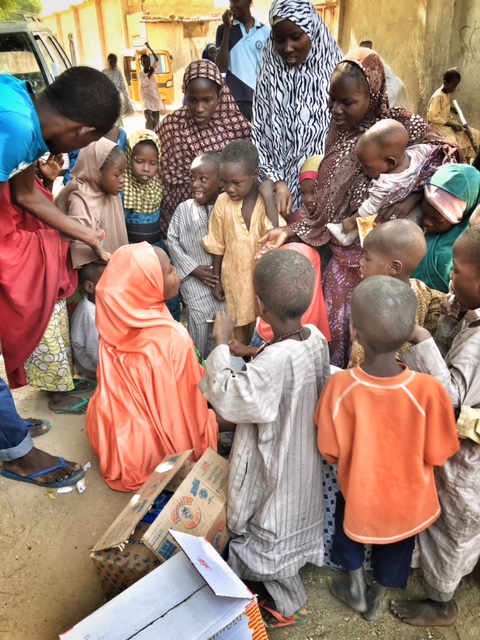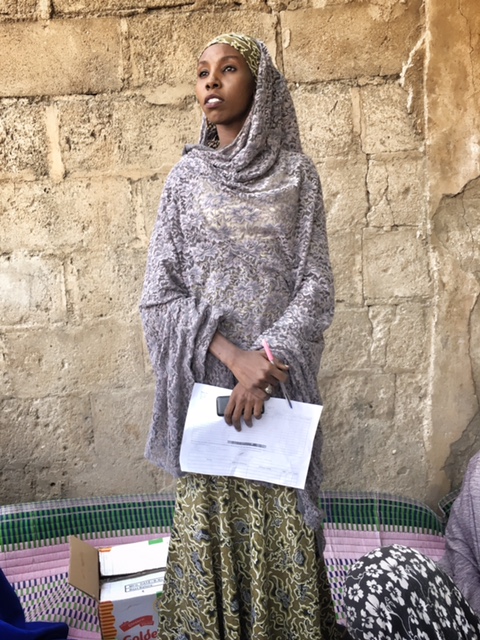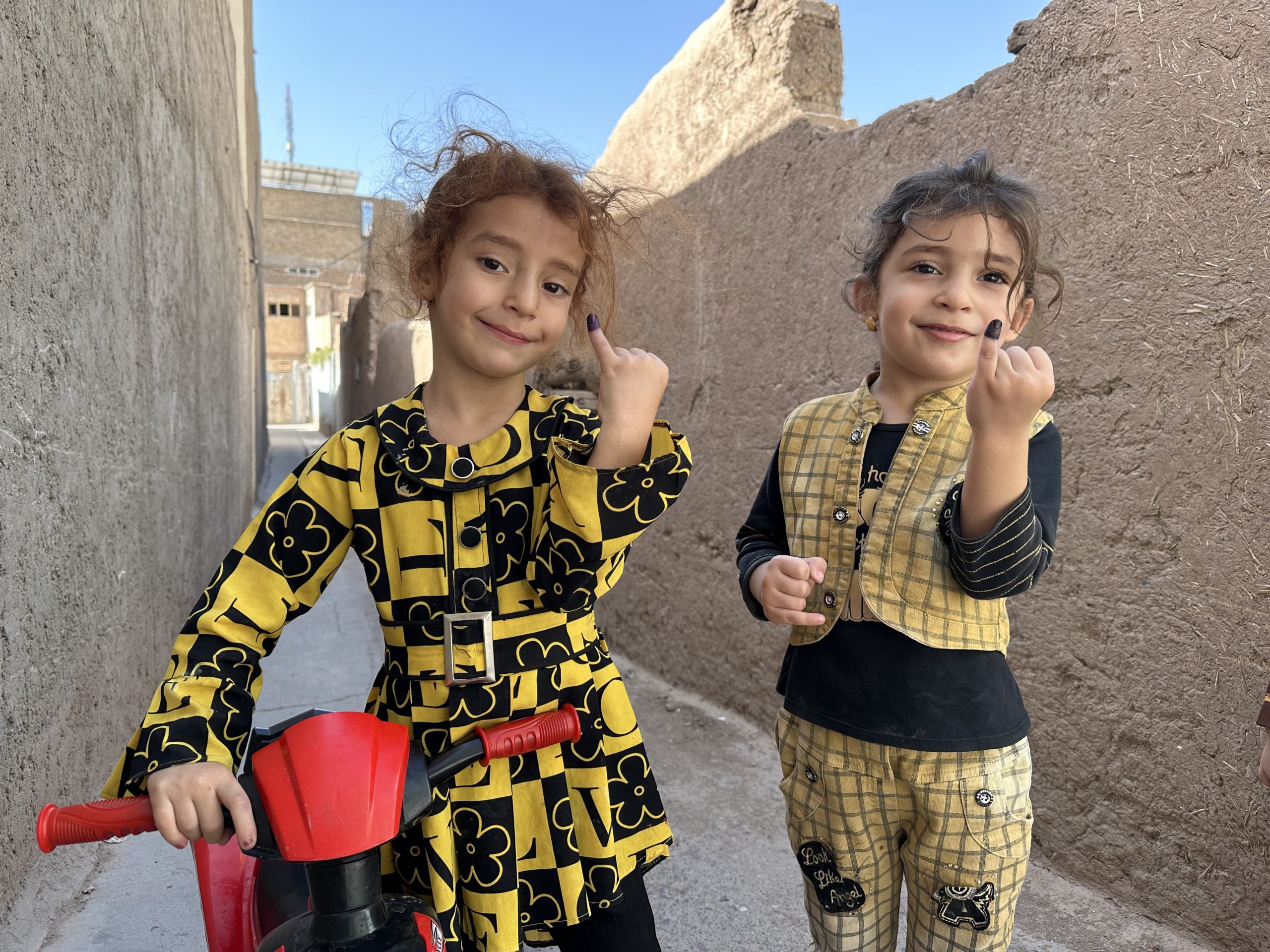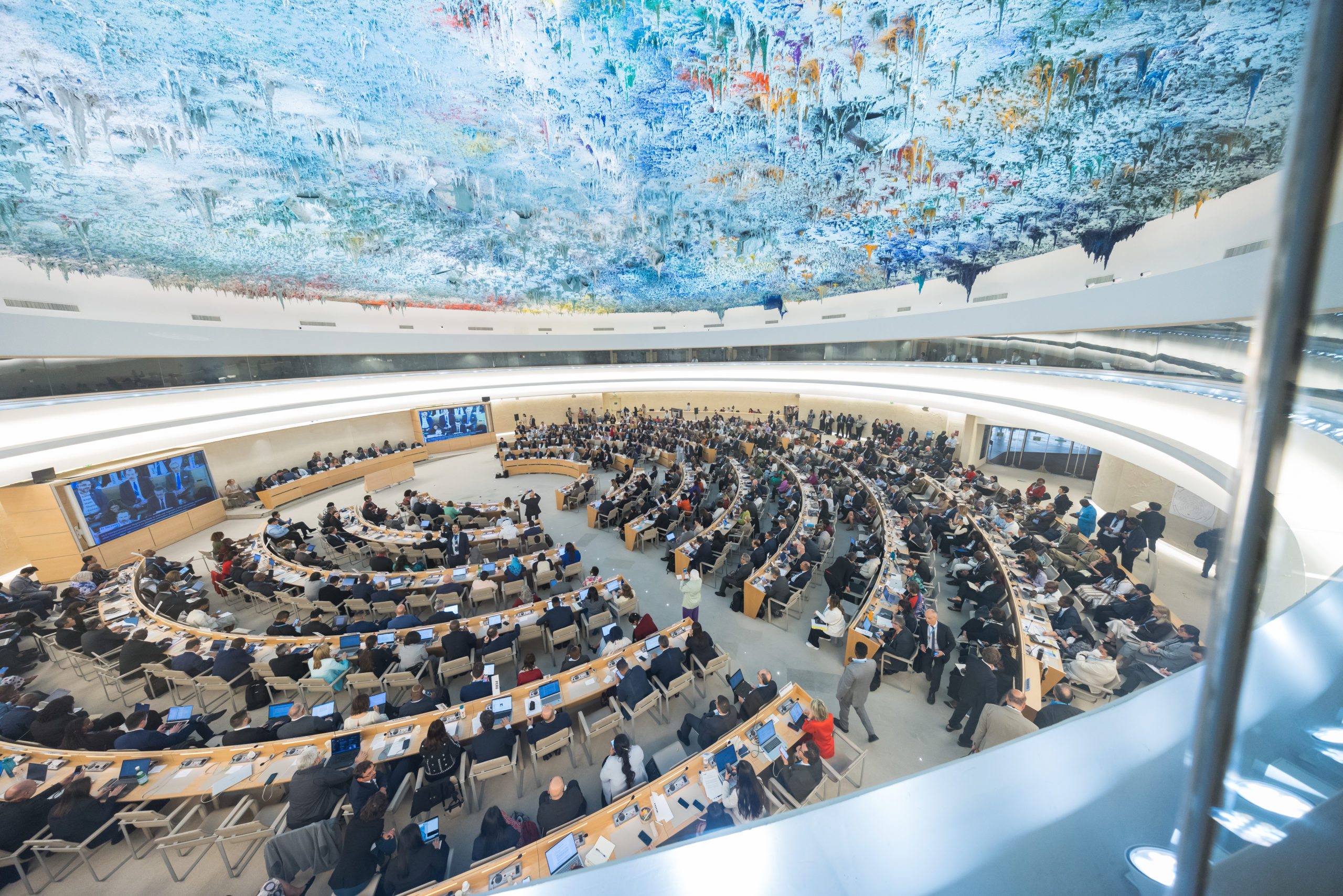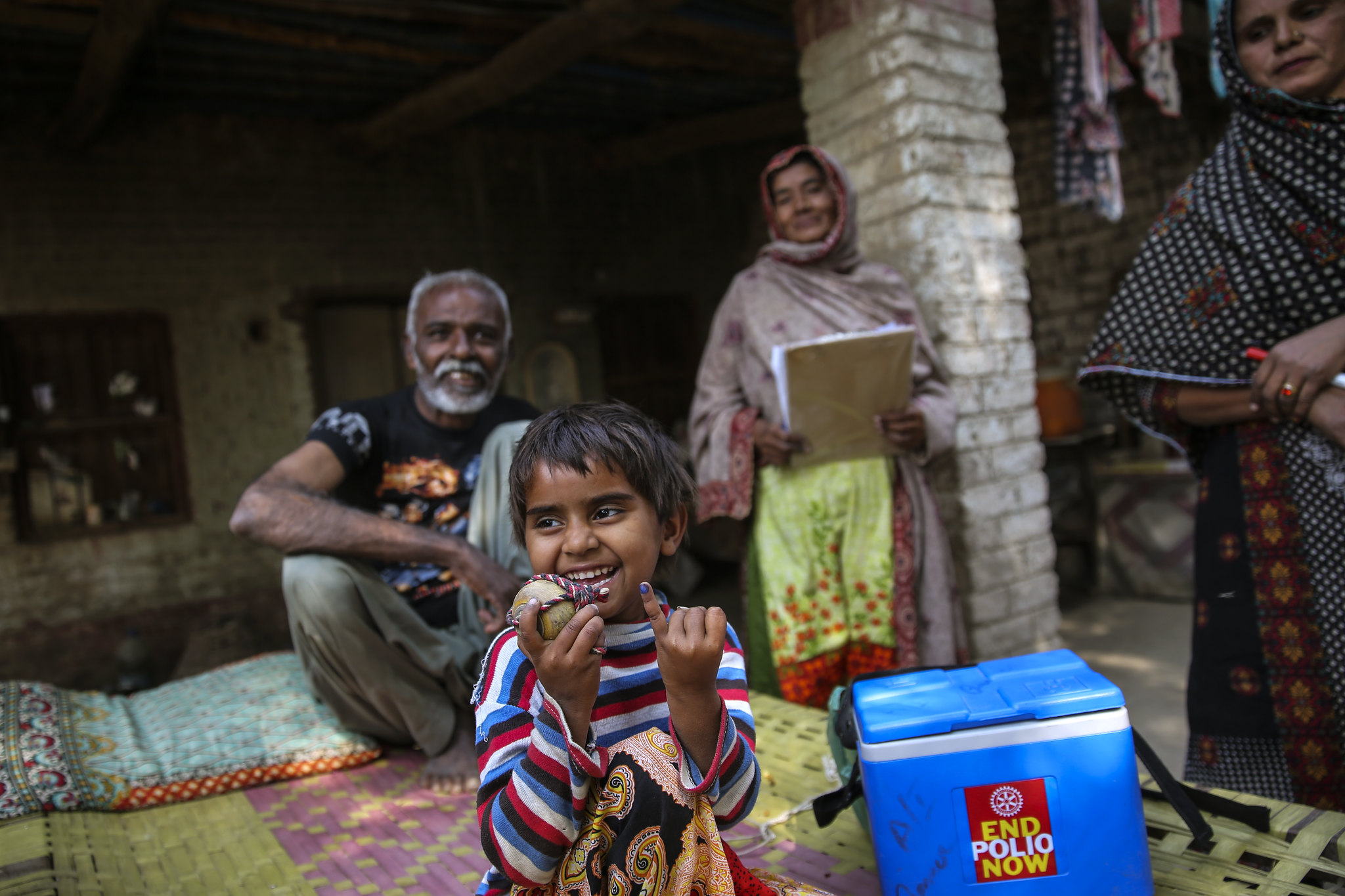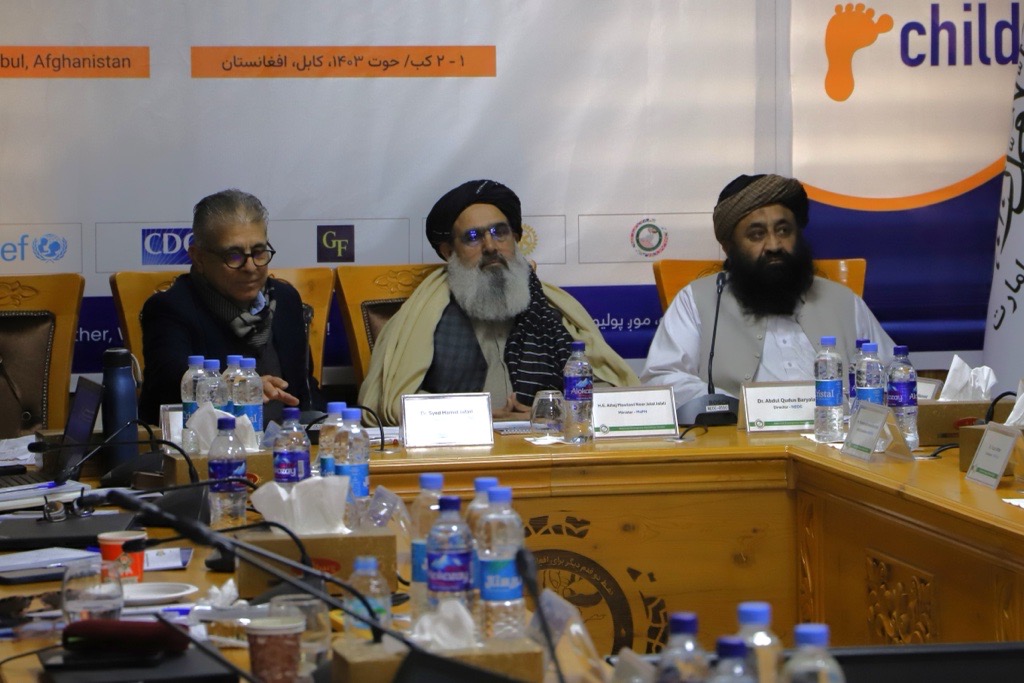In August 2016, hundreds of thousands of people fled their homes in Borno State, north-eastern Nigeria, where they had been living in areas under the control of the armed group Boko Haram. These areas had been inaccessible to any health programme, including polio vaccinators.
When health workers finally reached these families, they found thousands of severely malnourished children in need of treatment for a range of health conditions. They also found four children in three different locations within Borno paralyzed by polio. The virus had been spreading silently in these areas for the past two years, beyond the reach of the polio eradication programme.
The detection of polio in Nigeria was a serious setback for the polio eradication programme. With no cases detected in Nigeria or any other African country for two years, there was hope that Africa was polio-free.
The outbreak response was swift and comprehensive, with the Governments of Borno and Nigeria, the World Health Organization and UNICEF conducting an immediate emergency vaccination response.
From August, health authorities conducted five large-scale supplementary vaccination campaigns targeting every accessible child under five years of age in Borno State. Campaigns were also aimed at children in the bordering states of Nigeria, as well as the Lake Chad region of Niger, Chad, Cameroon and the Central African Republic in synchronized activities to rapidly raise childhood immunity to the poliovirus and protect against inter-state and international spread. Approximately 11 million children are being targeted across the region.
Multiple strategies were employed to reach as many children as possible. Additional health workers were hired and trained and detailed plans for each settlement and internally displaced persons camp were comprehensively reviewed to ensure all children were registered for immunization. Targeted media campaigns drew awareness to the upcoming vaccination campaigns. Health camps offered polio vaccination in addition to basic health care packages.
To accelerate community demand for vaccination, the Volunteer Community Mobilization Network was quickly scaled up to reach all highest-risk communities. These women, in their distinctive blue hijabs, move from house-to-house and through the internally displaced persons camps to ensure parents know about the risk of polio and the importance of full immunization for their children. Working for just a couple of dollars a day, they also connect pregnant women to available health services and encourage safe delivery practices, as well as identifying children with severe acute malnutrition and linking them to treatment facilities.
Health camps have been set up in areas with a high number of internally displaced persons to offer much-needed health services than polio vaccines alone. These include de-worming tablets, zinc, oral rehydration salts for children with diarrhea as well as other routine vaccinations for children who may never have had contact with a health system. Polio survivors help to educate parents at these camps to the dangers of the current outbreak and the fact that there is no cure for polio, but that it can be prevented through vaccination.
To access the hardest-to-reach populations in newly-accessible areas, the Government of Nigeria with support from the United Nations is using helicopters to deliver vaccines and other health services. UNICEF has procured and delivered more than 150 million doses of oral polio vaccine to this outbreak response. The work remains dangerous, with ongoing attacks and active fighting in some areas.
After having access to so little for so long, the demand for services has been overwhelming from affected communities. The provision of soap and other basic ‘pluses’ has helped to meet some of these needs, and encouraged mothers to bring their children out for vaccination.
With so much at stake, strong monitoring and supervision has been key to ensuring as many children can be reached as possible. Wide-scale vaccination campaigns offering polio vaccination and other services will continue throughout the first quarter of 2017 in an effort to ensure this outbreak is stopped and the world can finally achieve a polio-free Africa, once and for all.
